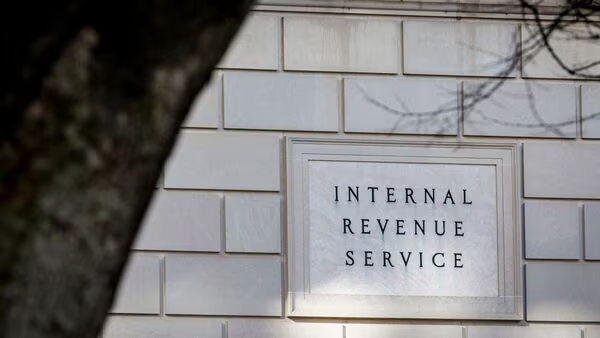Hey there, small business warriors! If you’re pouring your heart into a cozy café in Seattle or a tech startup in Austin, you know the grind is real. I remember the sleepless nights when I helped a friend launch her boutique in Chicago—every penny counted, and the fear of unexpected setbacks loomed large. That’s where small business insurance swoops in like a superhero, shielding your dream from life’s curveballs. In this 2025 guide, I’ll walk you through the must-knows of small business insurance, from legal requirements to tailored coverage, all with a sprinkle of real-world wisdom. Let’s dive in and safeguard your hustle!
Why Small Business Insurance Isn’t Optional
Running a business is like juggling flaming torches—one misstep can spark chaos. Whether it’s a customer slipping on your shop floor or a cyberattack wiping your data, uninsured losses can sink you. According to recent stats, 40% of small businesses don’t recover from major disasters due to inadequate coverage. That’s a risk you can’t afford.
The good news? Insurance isn’t just a safety net; it’s often a legal must. For example, if you’ve got employees classified as full-time by the Internal Revenue Service, workers’ compensation is non-negotiable in most states. Plus, clients or landlords might demand specific policies before signing contracts. It’s about peace of mind and keeping your doors open.
Key Types of Insurance Every Small Business Needs
Let’s break down the essentials, starting with the big three:
- General Liability Insurance: Covers third-party claims like bodily injury or property damage. Imagine a customer tripping over a loose cable in your office—general liability has your back.
- Commercial Property Insurance: Protects your physical assets—think inventory, equipment, or your storefront—against fire, theft, or floods. My friend’s boutique lost a display to a pipe burst; this coverage saved her.
- Business Owner’s Policy (BOP): A fan favorite, BOP bundles general liability, property, and business interruption insurance at a discount. It’s like a combo meal for your business’s core risks.
Depending on your industry, you might also need professional liability (for consultants or advisors) or cyber insurance (if you handle customer data). A food truck in Miami? Product liability is a must to cover any food-related mishaps.
Legal Requirements: What’s Mandatory?
Not all insurance is optional. Workers’ compensation is required in most states if you have employees, even part-timers. For instance, California mandates it for businesses with just one employee, while Texas gives sole proprietors a pass unless they opt in. Commercial auto insurance is another must if your business uses vehicles—think delivery vans or company cars.
Some industries face extra rules. If you’re selling at a local market, they might require public liability insurance. Check your state’s regulations and contracts to avoid surprises. Tools like the Controlio app can help track employee hours to ensure compliance with labor laws—try this calculator to estimate annual work hours for accurate policy planning.
Tailoring Coverage to Your Business
No two businesses are alike, and neither are their insurance needs. A home-based Etsy shop might only need a rider on their homeowner’s policy, while a construction firm in Denver needs heavy-duty coverage for equipment and job-site risks. Here’s how to customize:
- Assess Risks: Selling homemade candles? Fire damage is a top concern. Running a consulting firm? Focus on professional liability for advice-related claims.
- Compare Quotes: Platforms like EasyFinance.com can save you up to $500 annually by comparing insurers. Get multiple quotes to find the sweet spot between cost and coverage.
- Consider Add-Ons: Data breach insurance or business interruption coverage can be game-changers. When my friend’s boutique closed for repairs, business interruption insurance covered lost revenue.
In 2025, cyber insurance is trending, with cyberattacks up 30% for small businesses. If you store customer info, this one’s worth a look.
Budgeting for Insurance: Costs and Savings
Worried about costs? Small business insurance averages $59-$141 monthly, depending on your industry and size. A sole proprietor might pay $708 yearly for basic coverage, while a BOP for a retail store could hit $1,692. High deductibles can lower premiums, but ensure you can cover out-of-pocket costs.
Save by bundling (BOPs are great for this) or paying annually. Some insurers, like The Hartford or Hiscox, offer discounts for low-risk businesses. My friend shaved 15% off her premium by proving her boutique had a top-notch fire suppression system—every bit helps!
Navigating Claims and Avoiding Pitfalls
Filing a claim? Act fast—report incidents within days and document everything. Photos, receipts, and witness statements are gold. If a claim’s denied, don’t panic; appeal with help from your insurer or a lawyer. Misclassification of employees (like calling them contractors) is a common snag—use tools like Controlio software to track hours and clarify status.
Also, read the fine print. Exclusions (like intentional damage) can trip you up. When my friend’s claim for flood damage was initially denied due to policy limits, a quick chat with her broker clarified add-on options, saving the day.
2025 Updates: What’s New?
This year, states are tightening rules. California’s SB 216 mandates contractors carry workers’ comp, and many regions now require clearer workplace insurance postings. Cyber insurance is also getting traction, with policies covering ransomware and data breaches becoming standard for tech-heavy businesses.
Final Note: Build Your Safety Net
Owning a small business is a wild ride, but insurance keeps you grounded. From general liability to cyber protection, the right coverage shields your dream from the unexpected. Take it from me—after seeing my friend’s boutique bounce back from disaster, I’m a believer in planning ahead. Assess your risks, compare quotes, and lean on tools like Controlio to stay organized. Your business is worth it. Got questions or a story to share? Drop a comment—I’d love to hear your hustle!







